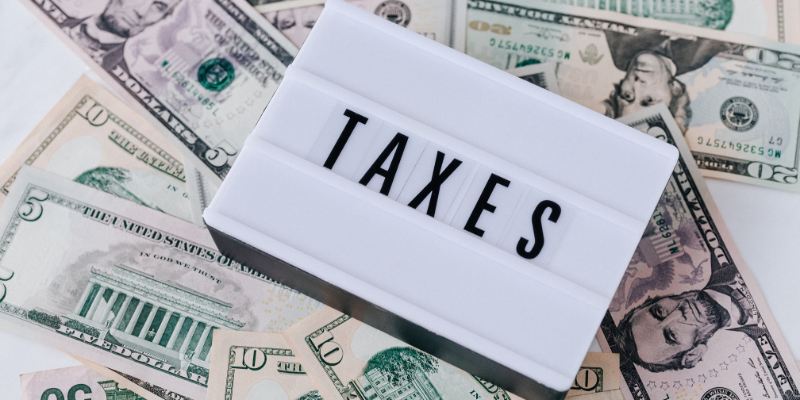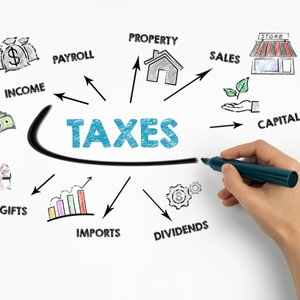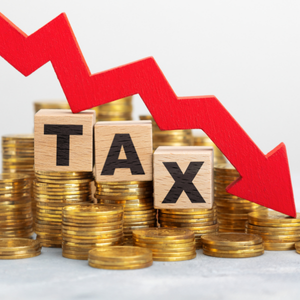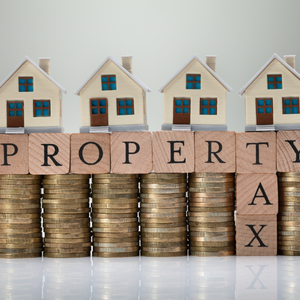
Understanding Capital Gains Tax When Selling a Home in Jacksonville, FL

Tax planning when selling a home in Jacksonville, FL–especially the capital gains tax–is crucial for maximizing your wealth. The capital gains tax in question pertains to the net earnings from the sale of your home, specifically the difference between your home’s adjusted basis and the selling price.
In Jacksonville, there is a capital gains tax exclusion for individuals who have owned and lived in the property for a period of 2 years in the last 5 years. A single filer is permitted an exclusion of $250,000, and $500,000 for married couples filing jointly.
Capital gains tax will apply if the profit limits are surpassed, followed by applying the tax based on the income bracket. For bespoke strategies that suit your needs and to remain compliant with IRS rules, reach out to Yellow Card Properties. We assist clients in reducing tax liability and optimizing home sales.
Key Factors Affecting Property Tax Rates
- Assessed Value: Jacksonville’s property tax rates are influenced by the property’s assessed value, which is determined by the Duval County Property Appraiser.
- Millage Rate: The local millage rate, set annually by various taxing authorities, can fluctuate based on budgetary needs for public services like schools, infrastructure, and emergency services.
- Homestead Exemption: Exemptions such as the homestead exemption can significantly lower your property’s taxable value, reducing your overall property tax burden if you qualify.
- Local Government Policies: Changes in local government policies or economic conditions can lead to adjustments in property tax rates and exemptions.
- Staying Informed: It’s vital for homeowners to stay informed about current regulations and potential changes to tax rates when selling a home in Jacksonville.
Legal Considerations When Selling Property in Jacksonville

Being familiar with the legal procedures is imperative when selling real estate in Jacksonville, Florida. Sellers need to consider possible tax repercussions, like capital gains tax, which is based on the ownership period and residence status. Understanding homestead exemptions in Florida is equally important because they can influence tax obligations—as can the financial impact of selling your home as-is, which may result in a lower sale price but fewer upfront costs.
Equally important is the need to have disclosures in regard to the property’s condition as well as any defects that are known, which could result in litigation. Discussing these issues with a Florida attorney who specializes in real estate will assist in complying with the laws and reducing possible legal problems. If all these factors are taken into account, selling the home will be quite easy and efficient when you sell your home for cash in Gainesville or nearby cities.
Impact of Local Regulations on Real Estate Sales in Jacksonville, Florida
Like many other counties in Florida, Jacksonville has specific regulations that may impact the sale of your home. For example, there may be printable ramifications and net proceeds due to the documentary stamp tax, which applies sales taxes on real estate transfers based on the sale price.
Moreover, expenditure properties assess and set value for real estate, which dictates property zoning and capital gain tax. Homestead exemptions also play a significant role if the taxpayer (seller) has occupied the house for 2 or more years. Furthermore, it is crucial to be abreast of the local guidelines, policies, and tax regulations, which come with the aid of a tax professional when selling property in Jacksonville.
Calculating Net Proceeds From a Home Sale
When selling your home in Jacksonville, Florida, calculating net proceeds involves more than just subtracting your mortgage from the sale price. Consider the following key factors to understand your true profit:
- Selling Price: Start with the final sale price of your home.
- Mortgage Payoff: Subtract any remaining mortgage balance to find your gross proceeds.
- Closing Costs: Deduct real estate professional commissions, title insurance, and administrative fees common in Jacksonville transactions.
- Capital Gains Taxes: Consider potential capital gains taxes, especially if your home appreciated significantly, but check if you qualify for IRS exclusions.
- Improvement Costs: Subtract the cost of any repairs or upgrades made before
Understanding these components will give you a realistic estimate of your net proceeds and help you prepare for any tax responsibilities related to your home sale.
Preparing for Post-sale Obligations: Moving Out of Your Sold Property Efficiently

Separating the closing tasks for your home selling in Jacksonville, FL is crucial for staying organized. Collecting the tax reporting documents and determining eligibility for capital gains exemptions, along with moving logistical details are all integral aspects of your home selling process.
In working with a reliable buyer like Yellow Card Properties, you gain access to the convenience of a cash-based sale, whether you’re looking to sell your home for cash in Jacksonville or nearby cities. This allows for detailed pre-sale simplifications and streamlined logistics. Their assistance ensures you are in control of your removal timeline and sidesteps the typical tensions associated with home selling.
FAQS
Do I have to pay state income tax when I sell my house in Florida?
Yes, Florida does not impose a state income tax. Hence, there is no state tax liability on your home sale profit. Nevertheless, a federal capital gains tax liability may still exist.
How can I avoid paying capital gains tax when selling my Jacksonville home?
Provided that the house was your primary residence for a period of at least two years in the last five years, you may be eligible to avoid taxation on profits of up to $250,000 ($500,000 if you are married). Any profits exceeding these figures could be subject to taxation by the IRS.
What else can reduce my capital gains tax on a home sale?
Documenting significant home improvements can elevate your home’s cost basis, thus decreasing your taxable profit. It is wise to seek a tax professional’s counsel customized for your circumstances.
Do seniors have to pay capital gains tax when selling their home in Jacksonville, FL?
If a home was the primary residence of the elderly for two out of the last five years, they might be eligible for a capital gains tax exclusion of $250,000 (or $500,000 for married couples). This exclusion facilitates avoidance of taxation on the majority, if not all, of the profit garnered from the sale of the home.
Are there special tax breaks for seniors over 55 when selling a home?
Although there’s no longer a particular exemption based solely on being 55 years old or older, seniors may qualify for exceptions because of health or other factors. A tax professional can assess qualifications for further tax relief.
Do I have to pay taxes to the IRS when I sell my home in Jacksonville, FL?
Investers can incur capital gains tax liability if their profits are above the IRS exclusion caps; however, numerous sellers are eligible to claim an exclusion of as much as $250,000 ($500,000 for married couples filing jointly) if the house was their primary residence.
How can I reduce or avoid capital gains tax on my home sale?
Residing in the house for two out of the past five years, in combination with undertaking specific home enhancements, can significantly alleviate one’s taxable gain or even erase it entirely. In your case, a tax counselor will best help you navigate through your unique circumstances.
Do you need to sell your home quickly, avoid costly repairs, or prefer a hassle-free sale? Yellow Card Properties is here to help with fair cash offers and a seamless process. Just keep in mind the tax implications: if the home is your primary residence, you may qualify for exclusions on capital gains, but it’s important to understand how taxes could affect your sale. Ready to sell or have questions? Contact us at (904) 539-4420 for a no-obligation offer and get started today!
Helpful Jacksonville Blog Articles
- Selling A Water-damaged House In Jacksonville, FL
- Filing A Quitclaim Deed For Real Estate In Jacksonville, FL
- Tax Implications of Selling a Home in Jacksonville, FL
- Sell Your Tenant-Occupied House In Jacksonville, FL
- Seller Closing Costs Without A Realtor In Jacksonville, FL
- Home Repairs To Meet Appraisal Standards In Jacksonville, FL
- Paperwork For Selling Your Home By Owner In Jacksonville, FL
- Selling A House With Foundation Problems In Jacksonville, FL
- Homeowners Insurance When Selling Your House In Jacksonville, FL
- HOA Liens And Foreclosure Risks For Homeowners In Jacksonville, FL
- Understanding The Rules For Leaving Your Jacksonville Home Vacant
- Top-rated Property Managers For Residential Real Estate In Jacksonville, FL
- Do You Need A Lawyer To Sell Your House In Jacksonville, Florida?

